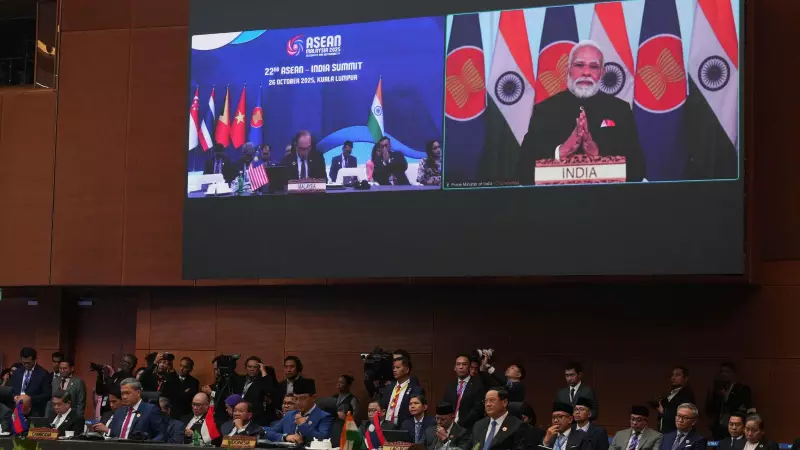
In an era of geopolitical turbulence and shifting global alliances, India is strategically deepening its engagement with Southeast Asian nations, positioning itself as a reliable partner in a rapidly changing world order. The recent developments signal a significant evolution in India's 'Act East' policy, moving beyond symbolic gestures to substantive economic and strategic cooperation.
The Strategic Imperative Behind India's ASEAN Push
With traditional global power dynamics undergoing dramatic transformation, India recognizes that strengthening ties with ASEAN nations isn't just beneficial—it's essential for regional stability and economic growth. The uncertainty surrounding major powers, including potential policy shifts from the United States under leadership changes, has accelerated New Delhi's outreach to Southeast Asia.
Prime Minister Narendra Modi's government has been methodically building bridges across the region, understanding that ASEAN's collective economic weight and strategic location make it indispensable to India's vision of becoming a leading global power. This isn't merely about countering Chinese influence; it's about creating a web of interdependent relationships that benefit all parties.
Economic Integration: The Core of the Relationship
The economic dimension of India-ASEAN relations has gained remarkable momentum. Trade flows have diversified beyond traditional commodities to include technology, digital services, and manufacturing. Indian companies are increasingly looking eastward for investment opportunities, while ASEAN nations see India's massive consumer market as an attractive destination for their products and services.
What makes this economic partnership particularly promising is the complementary nature of the economies. India's strengths in IT services, pharmaceuticals, and space technology align well with ASEAN's manufacturing capabilities, agricultural resources, and growing digital economy.
Diplomatic Milestones and Future Prospects
The relationship has been strengthened through high-level diplomatic engagements, including Prime Minister Modi's visits to multiple ASEAN capitals and reciprocal visits by leaders like Malaysia's Anwar Ibrahim. These interactions have built personal rapport and trust, which often translates into more effective policy coordination.
Looking ahead, several areas show particular promise for deepened cooperation:
- Maritime security collaboration in the strategically vital South China Sea and Indian Ocean regions
- Digital infrastructure development and cybersecurity cooperation
- Supply chain diversification as companies seek alternatives to concentrated manufacturing hubs
- Climate change initiatives and green technology partnerships
- Cultural and educational exchanges that build long-term people-to-people connections
Navigating Global Uncertainties
The potential return of Donald Trump to the White House adds another layer of complexity to regional dynamics. During his previous administration, Trump's unpredictable foreign policy approach created anxiety among Asian allies about America's long-term commitment to the region. This uncertainty has prompted countries like India to strengthen regional partnerships that can provide stability regardless of Washington's political winds.
India's approach appears to be one of strategic autonomy—maintaining important relationships with all major powers while building resilient regional frameworks that can withstand global political fluctuations. The ASEAN partnership fits perfectly into this strategy, offering a platform for cooperation that doesn't depend on any single external power.
The road ahead for India-ASEAN relations looks promising but requires consistent effort. Both sides must work to reduce trade barriers, streamline regulations, and address infrastructure gaps that hinder connectivity. The success of this partnership will significantly influence not just the economic prosperity of the involved nations but the broader balance of power in the Indo-Pacific region.
As global dynamics continue to evolve, the India-ASEAN relationship represents one of the most important strategic developments in contemporary Asian diplomacy—a partnership built on shared interests, mutual respect, and a common vision for a stable, prosperous future.





